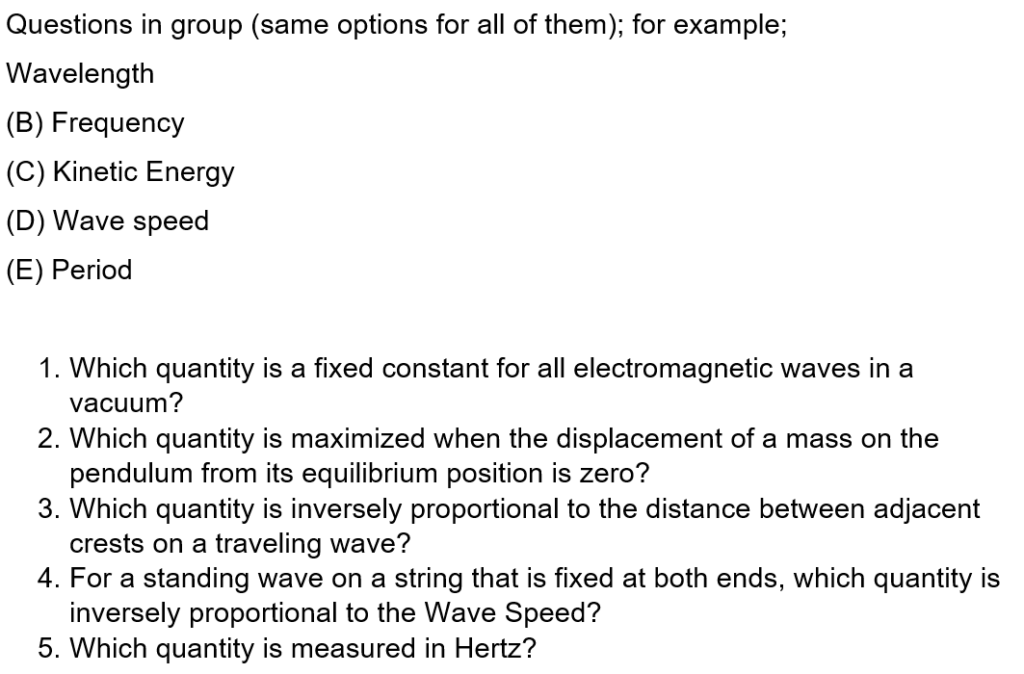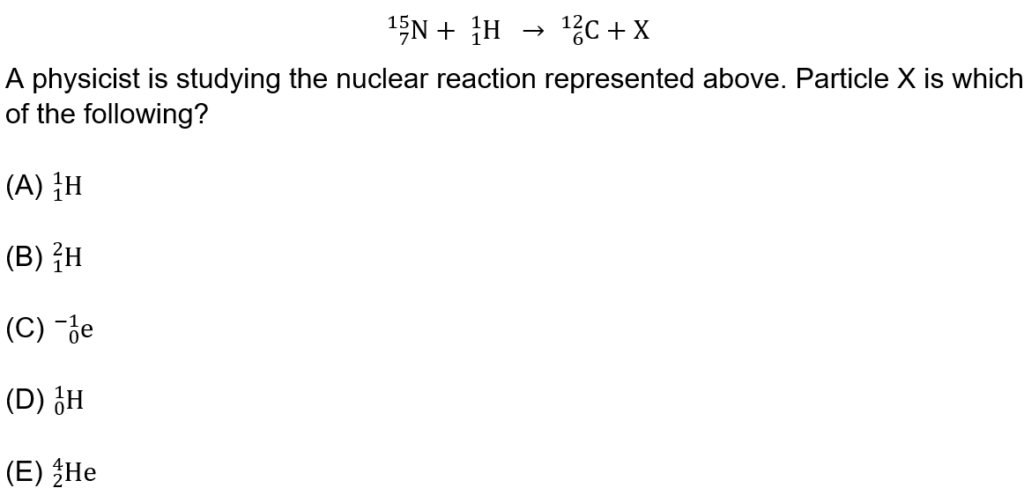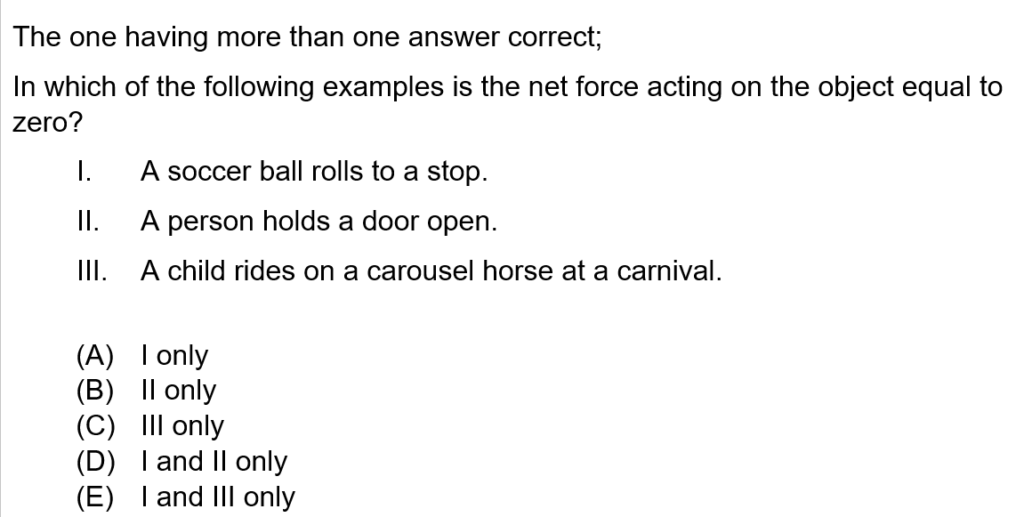About the exam
SAT subject test are conducted to evaluate proficiency of student in a particular subject. Subject test are offered in Math, Literature, Science, etc.
Duration of SAT Physics Subject Test: 1 hour
Questions: 75 questions
Scaled Score: 200-800
The exam is offered in the months of August, October, November, December, May, and June.
Note:
- Calculators are not allowed.
- Measurements are expressed in the metric system.
Types of Questions:
Type: 1
Questions in group (same options for all of them);

In these types of questions type, generally 3-5 questions are given in a group and for all of them we have same “five” answer choices.
In the above example 1, 2, 3 and 4 are the questions and a, b, c, d and e are the option choices.
Good thing about this question type is that all questions are scored separately.
Type: 2
Normal MCQ questions with 5 answer choices. There may be more than one correct answer.
The one having only one answer correct;

The one having more than one answer correct;

Course Structure:
| Skill-set and chapters to be covered | Expected questions |
| Mechanics: Kinematics, such as velocity, acceleration, motion in one dimension, and motion of projectiles. Dynamics, such as force, Newton’s laws, statics, and friction. Energy and momentum, such as potential and kinetic energy, work, power, impulse, and conservation laws. Circular motion, such as uniform circular motion and centripetal force. Simple harmonic motion, such as mass on a spring and the pendulum. Gravity, such as the law of gravitation, orbits, and Kepler’s laws | Once can expect the greatest number of questions from this topic, somewhere around 36%-40%. |
| Electricity and magnetism: Electric fields, forces, and potentials, such as Coulomb’s law, induced charge, field and potential of groups of point charges, and charged particles in electric fields. Capacitance, such as parallel-plate capacitors and time-varying behavior in charging/ discharging. Circuit elements and DC circuits, such as resistors, light bulbs, series and parallel networks, Ohm’s law, and Joule’s law. Magnetism, such as permanent magnets, fields caused by currents, particles in magnetic fields, Faraday’s law, and Lenz’s law | One can expect somewhere 20% of the total questions from this topic. |
| Waves and optics: General wave properties, such as wave speed, frequency, wavelength, superposition, standing wave diffraction, and Doppler effect. Reflection and refraction, such as Snell’s law and changes in wavelength and speed. Ray optics, such as image formation using pinholes, mirrors, and lenses. Physical optics, such as single-slit diffraction, double-slit interference, polarization, and color | One can expect somewhere around 17-18% of the total questions. |
| Heat and Thermodynamics: Thermal Properties, such as temperature, heat transfer, specific and latent heats and thermal expansion Laws of Thermodynamics, such as first and second laws, internal energy, entropy, and heat engine efficiency | One can expect somewhere 6-10% of the total questions. |
| Modern physics: Quantum phenomena, such as photons and photoelectric effect Atomic, such as the Rutherford and Bohr models, atomic energy levels, and atomic spectra Nuclear and particle physics, such as radioactivity, nuclear reactions, and fundamental particles Relativity, such as time dilation, length contraction, and mass-energy equivalence | One can expect somewhere 7-10% of the total questions. |
| Miscellaneous General, such as history of physics and general questions that overlap several major topics Analytical skills, such as graphical analysis, measurement, and math skills Contemporary physics, such as astrophysics, superconductivity, and chaos theory | One can expect somewhere 5-8% of the total questions. |
